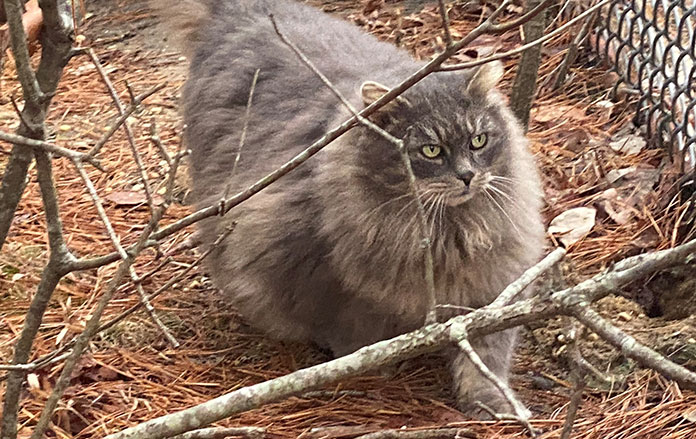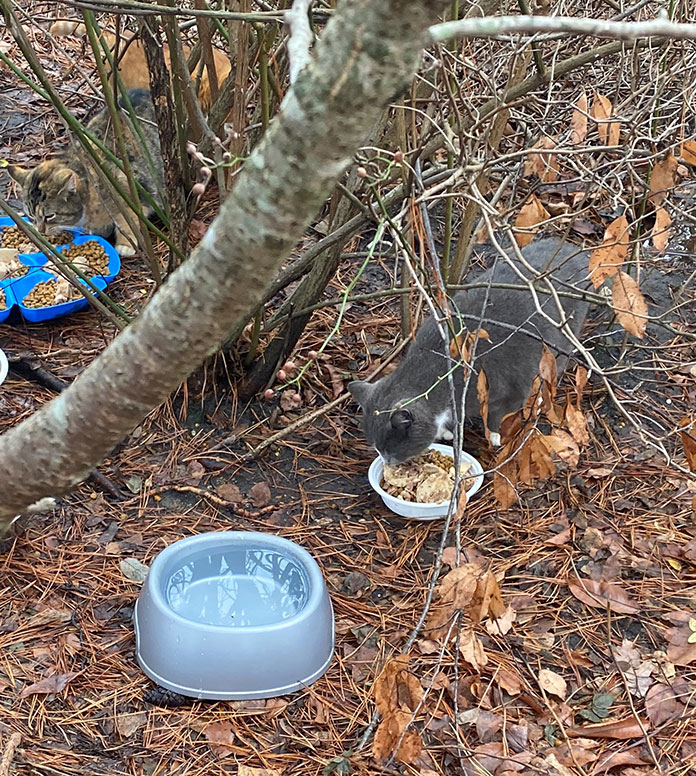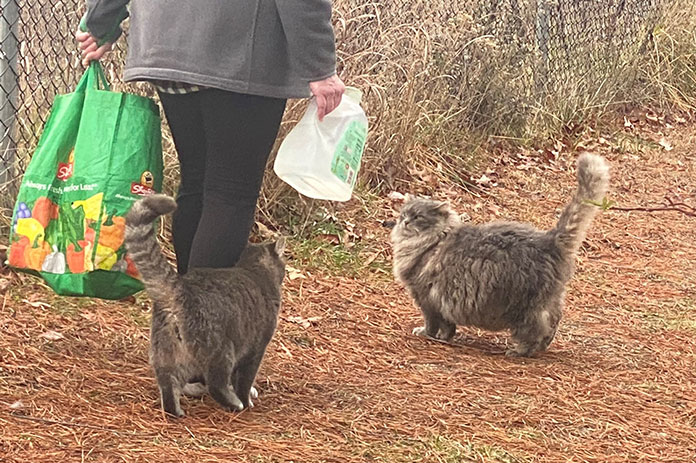
SOUTHERN OCEAN COUNTY – A small network of volunteers heads out daily on a unique type of mission work – taking on the role of caretakers for feral cats.
Manahawkin resident Linda Cook makes no bones about her love for animals. However, her commitment to homeless felines extends beyond her service as the Friends of Southern Ocean County Animal Shelter president.
According to Cook, a group separate from the county shelter began a TNR program in approximately 2012. The acronym stands for “trap, neuter, and return” and acts as a humane way of controlling the feral cat population.
“We trap them to get them spayed and neutered,” explained Cook. “They also get flea medication, get microchipped, and get a rabies and distemper shot.”
Some cats picked up in the wild appear to have strayed from home or show signs that someone intentionally abandoned them. The latter is something the volunteer group comes across with increased frequency.
“Just a couple of weeks ago, a guy out in West Creek got in touch with me,” Cook shared. “He was way out in the woods on a dirt road on his motorcycle and came across a kitten in the middle of the road sitting on a towel.”

Cook said the biker swooped up the tiny cat and put it in his jacket to bring to her. Both found it incredulous that someone literally dumped a pet that Cook referred to as a sweetheart.
Cats who respond to socialization become candidates for adoption as made available through a partnership with PetSmart. Approximately 99 percent of cats or kittens found at PetSmart locations in Manahawkin and Mays Landing originated from local volunteer rescue efforts.
On the other hand, ferals know no other home than the outdoor colonies where they were initially found. These types of cats not only resist human interaction, but their instincts make them nearly impossible to tame. As a result, animal shelters do not put up feral cats for adoption, and many are ultimately euthanized.
The TNR program makes a conscious effort to return ferals to their familiar colonies. In Southern Ocean County, approximately three or four individuals actually check in on them to provide them food and shelter.
Cook, herself, visits six different colonies of feral cats every day. At one location, a parade of felines met her at the car and eventually followed her to their feeding place. Cook has assigned names to each of the colony members, and they all responded as she called out to them.

Tomas, a magnificent floofy cat, headed towards Cook and hesitated. He saw she was not alone and seemed to think twice about the appearance of an unfamiliar human.
“At the beginning of the summer, Tomas got sick, and I actually had to grab him and run him to the vet,” said Cook. “I had flea medication on him, but his fur was so thick that he was anemic from the fleas and ticks on him.”
“They shaved Tomas like a poodle,” Cook smiled. “It was the cutest thing you ever saw.”
A cat named “Mr. Man” allowed the dedicated caretaker to reach down and pet him. Mr. Man fights off any attempts to pick him up. Cook pointed out Samson, a black cat, who waited on the fence to take in the scene.
Providing shelter for the cats calls for some improvision. Cook personally built a cave from leaves and nesting materials for one colony of ferals. They crawl through a hole to find some sort of sanctuary from the elements.
Other wildlife creatures pose threats to the feral population. According to Cook, she fears that coyotes will harm the cats. She’s also had her own personal encounter with another animal while dropping off food for one of the colonies.
As she was preparing to leave, Cook spotted a black and white furry creature within steps of her. The skunk’s tail was up, and he seemed prepared to go into action.

“I was worried I was about to be sprayed,” said Cook. “I walked around him, and he headed towards the food instead.”
The TNR program servicing Southern Ocean County can always use more help according to Cook. Those needing assistance with getting feral cats spayed or neutered can also contact Linda at 609-597-6040 or Valerie at 609 661-3817.






